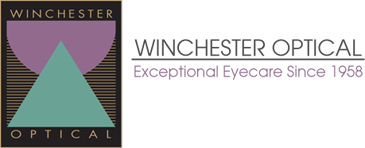
In recent years, myopia has become increasingly common among children. While a basic prescription for glasses may help in the short term, it’s vital to recognize when myopia is progressing and when intervention may be needed. Left unmanaged, progressive myopia can increase the risk of serious eye health issues later in life.
What Is Myopia?
Myopia, commonly known as nearsightedness, is a vision condition in which close objects are seen clearly, but objects farther away appear blurry. This occurs when the eye grows too long from front to back or when the cornea is too curved, causing light entering the eye to focus in front of the retina instead of directly on it. Myopia often develops in childhood and tends to progress as children grow. Below, we’ll explore the key signs of myopia progression and why early management is so important.
Frequent Changes in Glasses or Contact Lens Prescription
One of the most telling signs of myopia progression is needing stronger prescriptions at each eye exam. If your child’s vision seems to be worsening every year, it’s a red flag that their myopia is advancing.
Complaints of Blurry Distance Vision
Children may start to notice that objects in the distance, like classroom whiteboards, signs, or TV screens, are becoming blurry even with their current glasses or contacts. If your child squints or moves closer to see clearly, it’s time for a comprehensive eye exam.
Headaches and Eye Strain
Worsening myopia can lead to increased eye strain, especially when focusing on distant objects. Your child may complain of headaches or tired eyes, particularly after school or screen time.
Sitting Closer to Screens or Holding Devices Near the Face
A child with progressing myopia might instinctively hold books, tablets, or phones closer to their face than before, or move closer to the TV. This is often an unconscious attempt to see more clearly and can indicate their prescription is no longer sufficient.
Reduced Performance in School or Sports
Vision changes can impact learning, concentration, and performance in sports. If your child is struggling academically or in activities that require clear distance vision, myopia progression may be a contributing factor.
The Importance of Myopia Control Treatment
Myopia is not just about blurry vision. When left unmanaged, progressive myopia can increase the risk of future eye diseases like retinal detachment, glaucoma, cataracts, and myopic macular degeneration. Fortunately, advances in eye care mean there are now proven treatments to slow myopia progression in children, such as specially designed contact lenses, prescription eye drops, and lifestyle recommendations.
Schedule Your Child’s Eye Exam Today
Recognizing the signs of myopia progression is the first step to safeguarding your child’s vision. We’re committed to providing the latest myopia management solutions to help your child enjoy clear, healthy vision for life.
Contact Winchester Optical to schedule your child’s eye exam and learn more about effective myopia management options. Visit our office in Winchester, Massachusetts, or call (781) 214-3990 to book an appointment today.





